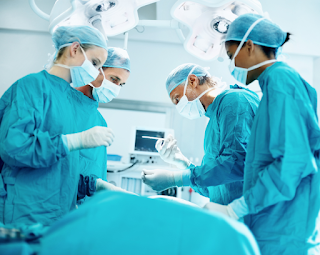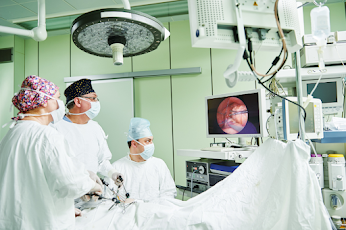Gastroesophageal reflux disease also known as GERD
is a long-term condition in which stomach acid backs up into the food pipe.
This leads to burning or acidity. As is the case with many patients; however,
symptoms can be controlled through lifestyle modification or drugs and some
necessitate surgery. This blog is intended to give readers basic information
about the GERD
surgery in Jabalpur and the outcome that one is likely to experience.
Why Consider GERD Surgery?
GERD surgery is typically recommended for patients
who:
• Have severe, persistent symptoms that do not
respond to medication.
• Experience complications like esophagitis
(inflammation of the esophagus), strictures, or Barrett’s esophagus.
• Prefer a long-term solution over lifelong
medication use.
• Have side effects from GERD medications.
Types of GERD Surgery
1. Nissen Fundoplication: The most common surgical
treatment for GERD, Nissen fundoplication, involves wrapping the top part of
the stomach around the lower esophagus to strengthen the valve between the
esophagus and stomach. This procedure prevents acid from backing up into the
esophagus.
2. LINX Device Implantation: A newer, less
invasive option, the LINX procedure, involves placing a ring of tiny magnetic
beads around the junction of the stomach and esophagus. The magnetic attraction
between the beads helps keep the junction closed but allows it to open when
swallowing.
3. Toupet (Partial) Fundoplication: This procedure is similar to Nissen fundoplication but involves wrapping
the stomach only partway around the esophagus. It is often used for patients
with weak esophageal muscles.
How GERD Surgery Works?
Preoperative Preparation
Before GERD
surgery in Jabalpur, patients undergo several tests, including:
•Endoscopy to visualize the esophagus and stomach.
• pH measurement for the level of acidity in the
esophagus.
• Manometry to assess esophageal muscle function.
The Surgical Procedure
The majority of GERD surgeries are done by laparoscopic surgery in Jabalpur
technique which requires little incisions and the use of a cable-linked camera
and mechanical equipment. This minimizes the amount of tissue damage and thus
the period for recovery and the pain that patients undergo after the operation.
• Nissen Fundoplication: During the
procedure, the laparoscopic surgeon in
Jabalpur wraps the upper part of the stomach around the esophagus and
stitches it in place. This reinforces the lower esophageal sphincter,
preventing acid reflux.
• LINX Device Implantation: To perform the
surgery, the surgeon creates an opening that is small and positions the LINX
device around the area of the lower esophagus. The treatment does not take long
either and the procedure could be completed within half an hour.
Postoperative Care
After surgery, patients may experience some
discomfort and will need to follow a specific diet. Initially, a liquid diet is
recommended, gradually progressing to soft foods and eventually a regular diet.
• Recovery Time: Most patients can
return to normal activities within a few days to a week, although heavy lifting
and strenuous activities should be avoided for several weeks.
• Follow-Up: Regular follow-up appointments are
essential to monitor recovery and ensure the effectiveness of the surgery.
Benefits and Risks
Benefits
•Significant reduction or elimination of GERD
symptoms.
•Improvement in quality of life.
•Decreased reliance on medications.
Risks
•As with any surgery, there are potential risks,
including infection, bleeding, and adverse reactions to anesthesia.
• Some patients may experience difficulty
swallowing, gas bloat or a return of symptoms over time.
GERD surgery offers a viable solution for those
suffering from chronic acid reflux that doesn't respond to other treatments. By
understanding how these procedures work and what to expect, patients can make
informed decisions about their health. If you suffer from severe GERD symptoms,
consult with the best laparoscopic
surgeon in Jabalpur to determine if surgery is the right option for you.











